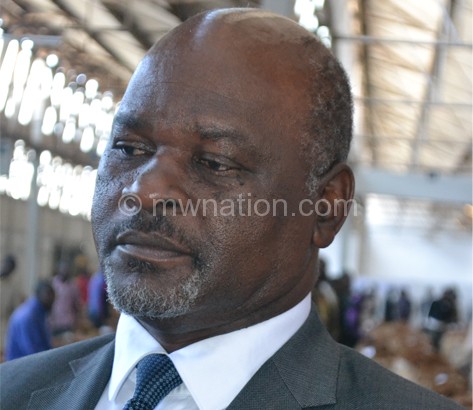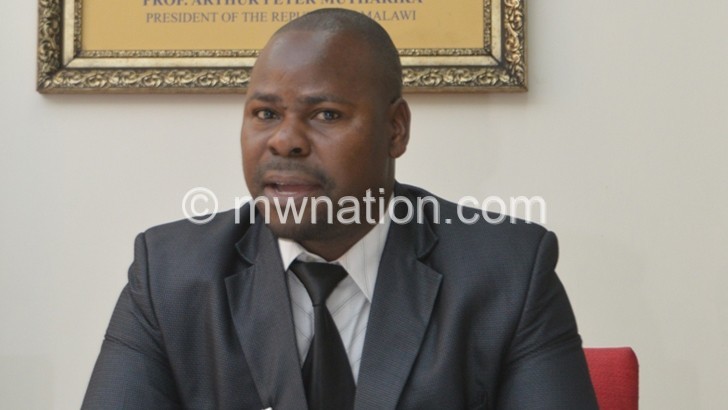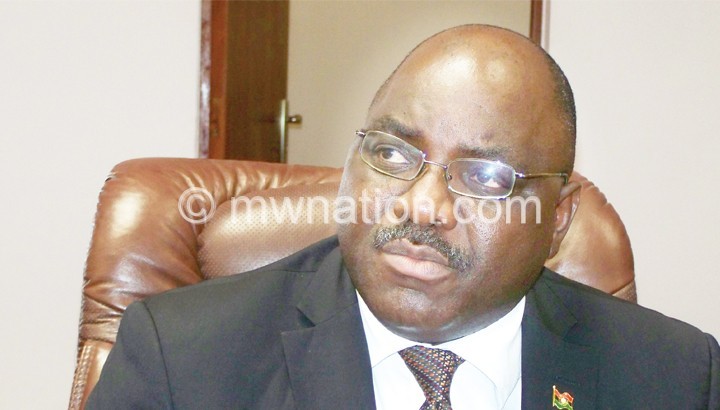More government officials swindled
Days after presidential adviser and former Cabinet minister Vuwa Kaunda lost about K1.4 million in a fake plot allocation, there are indications that other government officials were also allegedly duped by the same person.
Just like Vuwa, they made deposits to the same NBS current account – 14411631 under the name G. Kaunga—the suspected fraudster—who, according to our findings, has been posing as controller of lands Felix Mangani.

The latest list of victims, which Nation on Sunday has confirmed include, former minister of Agriculture Allan Chiyembekeza, director of public affairs in the Office of the President and Cabinet (OPC) Gerald Viola, Malawi Enterprise Development Fund (Medef) chief operations officer Dingiswayo Jere and son to Speaker of Parliament Richard Msowoya.
According to records we have seen, the concerned officials made their deposits into Kaunga’s NBS Bank and Airtel Money accounts between February last year and this month.
While sources show that Chiyembekeza lost over K700 000 to the scam, bank records in our possession only verified that the Thyolo South West lawmaker deposited K264 000 on February 5 2017 at NBS Capital City Branch.
When shown the bank evidence, Chiyembekeza confirmed depositing the said amount to the questionable account, describing the incident as regrettable.
While confirming that his deposit was in relation to a fake plot allocation, he said he was not comfortable to discuss the matter because it was all water under the bridge.
“Even if I explain to you everything, the money will not be recovered. I have lost it. It is one of those things that happen in a life time. I would rather not say anything more. Only God knows,” said Chiyembekeza.
Nation on Sunday findings reveal that officers sent money to the alleged account holder [Geoffrey Kaunga] through the NBS account or Airtel Money.

Viola admitted being swindled out of K1.1 million deposited in instalments through both the bank and Airtel Money account.
“It is true that I was swindled [out of money] by claims that the President [Peter Mutharika] had instructed his team to provide senior members with plots and that charges were to be paid for processing. Knowing Mr. Mangani as working for Lands [Ministry], I thought the issue was genuine until when I cross-checked with Lands. Lucky enough, I discovered earlier, before they swindled more out of me,” he explained.

Speaker of Parliament Richard Msowoya’s son, Pacharo, also deposited money into the account of the alleged conman.
Pacharo confirmed, in an interview, to have made some deposits amounting to K1.3 million to Kaunga’s account, adding that he believed it was a genuine transaction because he had applied for a plot at the Ministry of Lands.
From evidence we have seen, Pacharo deposited K386 000 on November 22 2017, a transaction he confirmed, further saying he made another transaction a few days later, including Airtel Money deposits, to reach K1.3 million.
He said as an applicant of some plot, it was easy to believe because the caller had presented what appeared to be genuine information regarding his application.
“I think if people like him can be exposed that can be a good thing. You see, they are robbing us of our hard-earned money and that is wrong. People, actually, take advantage because they think I am the Speaker’s son. So, I use my father’s name. No way, that is not the way we do things. I personally made an application and when I got the phone call I actually thought it was true,” narrated Pacharo who works with Nasfam.
Medef chief operations officer Jere also deposited K400 000 through a Mr. KMS Banda, according to a deposit slip in our possession.
In a telephone interview on Friday, Banda admitted depositing money into the suspicious account on behalf of Jere on October 10 2017, just as indicated in the deposit slip in our possession.
When contacted, Jere said the money deposited was part of upkeep for Kaunga, who was his in-law—as he was married to his sister. He further said Kaunga, real name Godfrey Nyirenda, was a victim of circumstances and was being used by other people, whom he could not name.
Through interviews, almost all duped officials suggested a possibility of Ministry of Lands officials conniving with fraudsters to con plot applicants based on genuine information which the suspected fraudsters used.
Last week, the Ministry of Lands, Housing and Urban Development released a statement warning the public of the existence of such fraudsters, advising that all transactions to do with plots are done through a government account and bank certified cheques.
On Thursday, the ministry’s Principal Secretary Charles Msosa described the syndicate as shocking and sophisticated, but he did not rule out a possibility of insiders conniving with fraudsters.
He said he has received calls from people who pose as Chief Secretary or presidential aides, asking for plot allocation, but he has always managed to contain such situation.
“Information in our files is private but also public because there are more people who handle it. So, anyone at any time can share applicants’ information to a fraudster. But also the applicants could also be sharing with others. You see, these [tricksters] are clever, they have the profile of the people they target and it becomes easy to believe them,” Msosa said, stressing that the President, as suggested in some way, is not involved in plot allocation.
In an interview, presidential press secretary Mgeme Kalirani also distanced President Peter Mutharika from the scam, saying the First Citizen has nothing to do with plot allocation, neither did he provide any list for some senior officials to benefit from the same.
National Police deputy spokesperson Thomeck Nyaude said the police have received complaints from a number of people and are currently investigating the matter.
But commenting on the development, rights activist Timothy Mtambo said officials’ knack to use short-cuts make them liable to being duped.
Mtambo believes the suspected fraudster was simply an agent of the corrupt State machinery further appealing to the youth to desist from being used by politicians.





